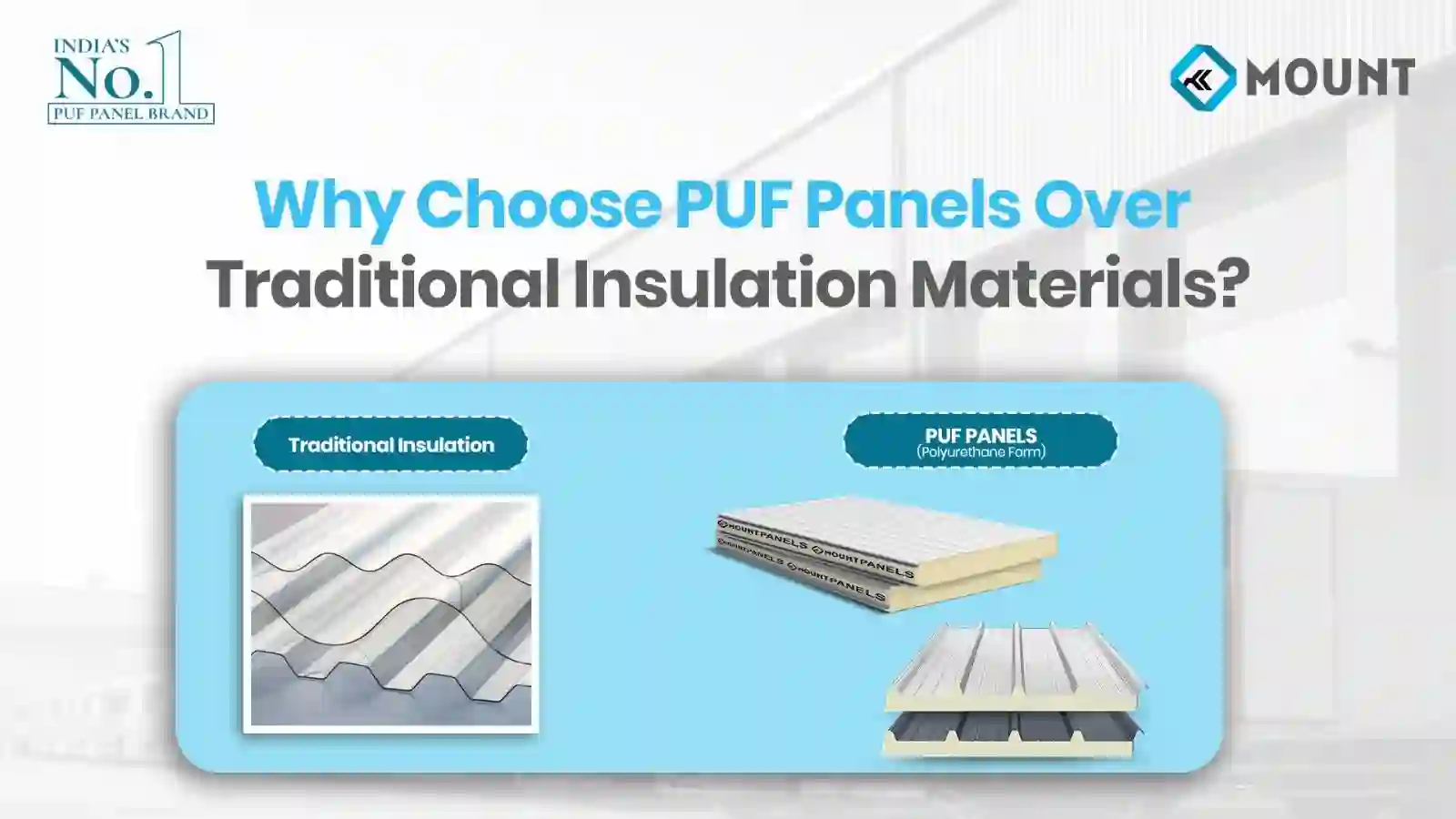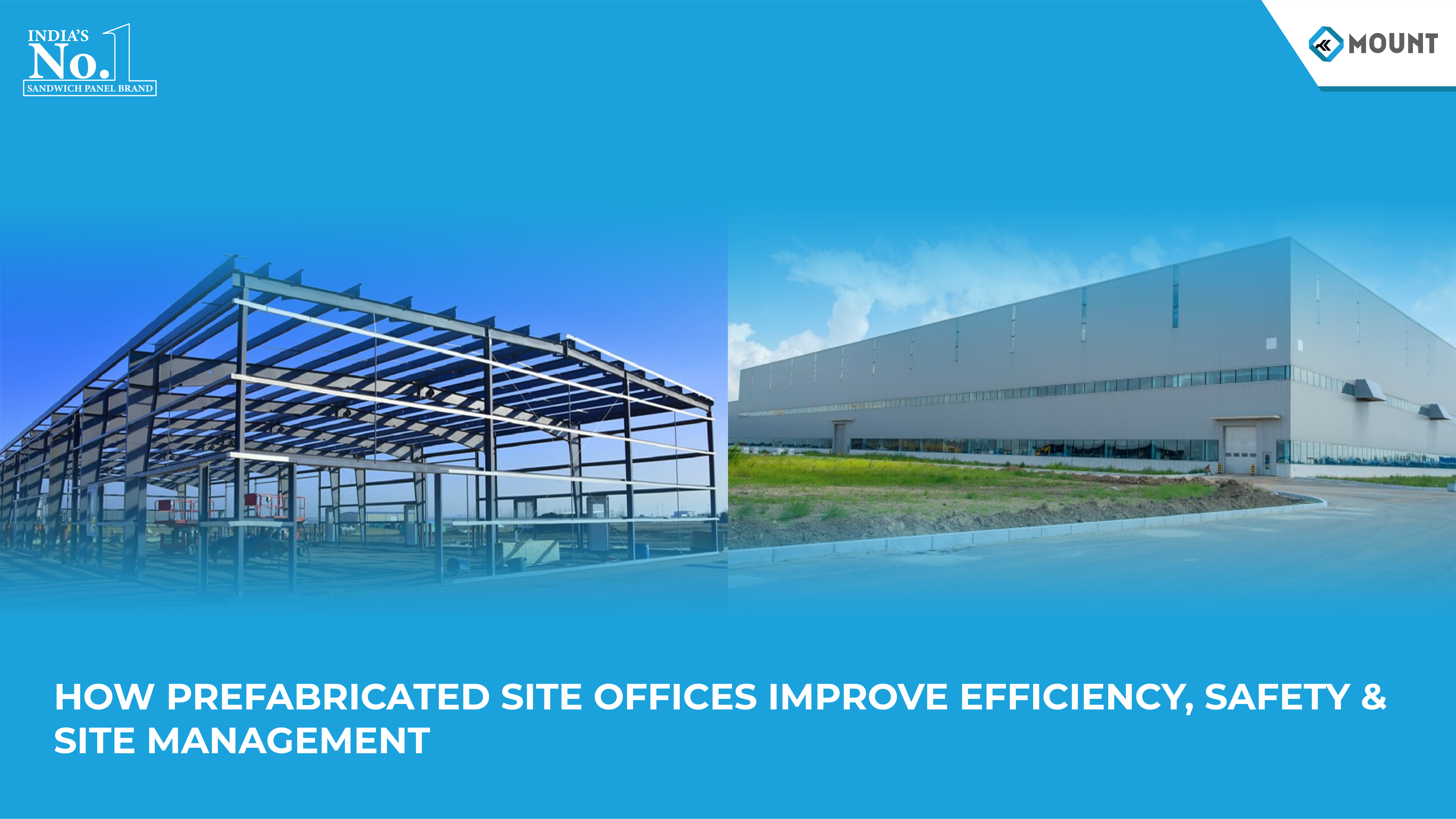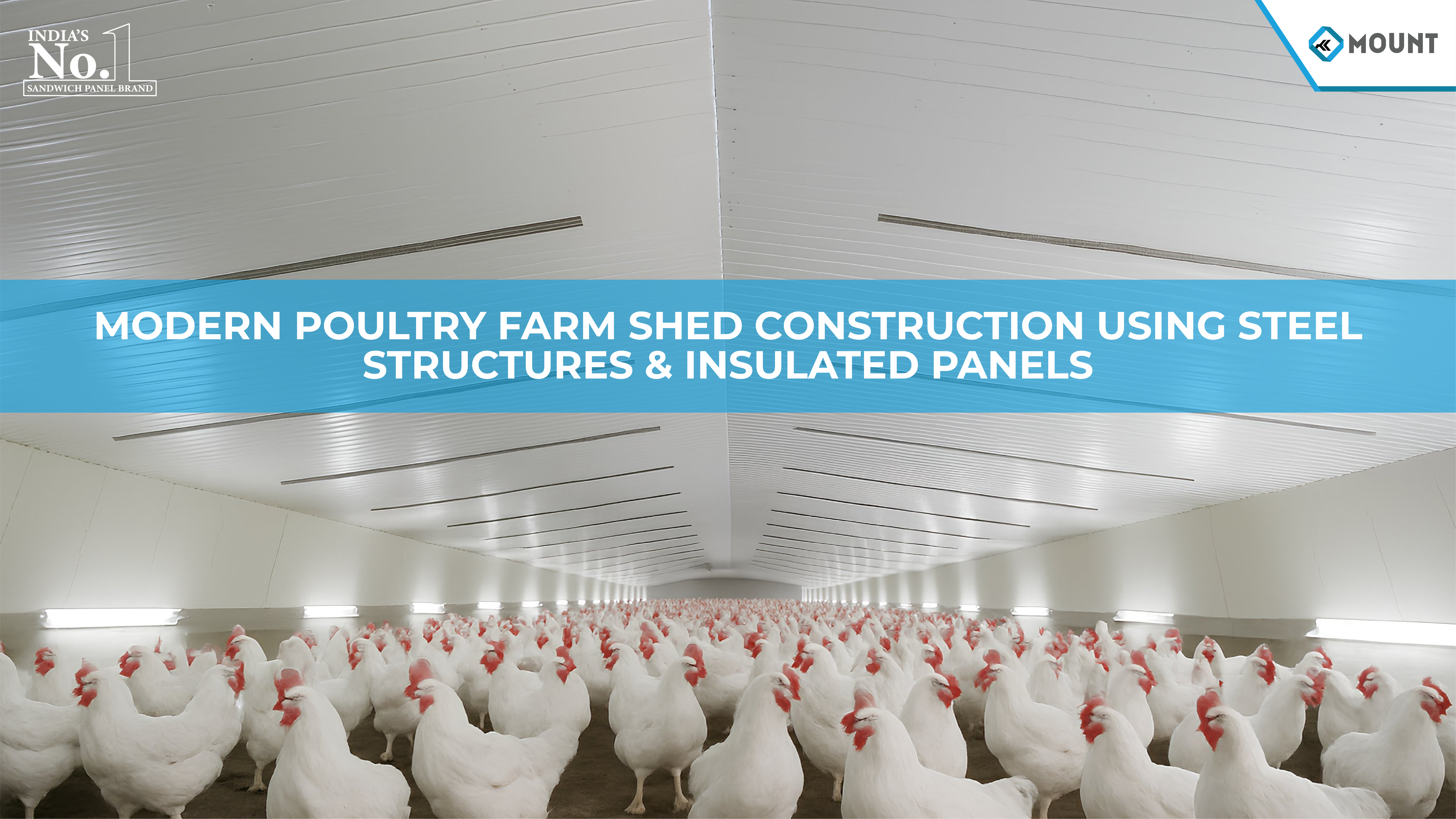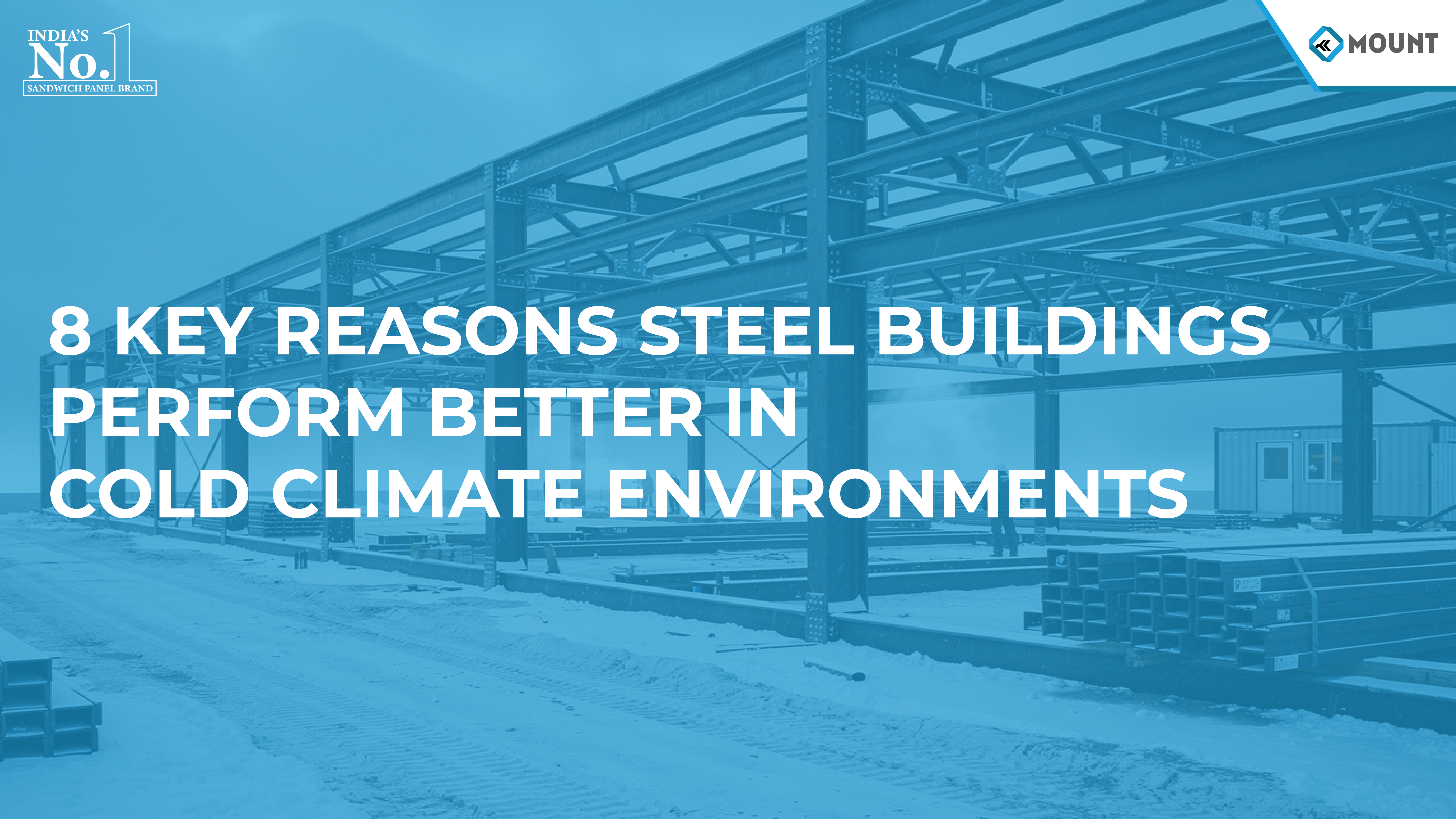
Why Choose PUF Panels Over Traditional Insulation Materials?
When it comes to insulation solutions for modern construction, the choice of material can significantly impact energy efficiency, structural integrity, and long-term costs. PUF Panels (Polyurethane Foam Panels) have emerged as a superior alternative to traditional insulation materials like fibreglass and concrete. As construction standards evolve and energy conservation becomes paramount, understanding why polyurethane technology outperforms conventional options is essential for builders, architects, and property owners alike.
Traditional insulation materials have served the construction industry for decades, but they come with inherent limitations. Fibreglass can absorb moisture and concrete offers minimal thermal resistance. In contrast, modern PUF roofing solutions provide exceptional thermal efficiency, structural strength, and remarkable durability that address these common pain points. At Mount, we’ve witnessed firsthand how switching to advanced polyurethane technology transforms building performance and reduces operational costs.
Superior Thermal Efficiency
The primary advantage of PUF sandwich panels lies in their outstanding thermal insulation properties. With an impressive R-value ranging from 5.6 to 8 per inch of thickness, polyurethane foam delivers nearly double the insulation capacity of fibreglass and significantly outperforms traditional insulation materials. This superior thermal resistance translates directly into reduced heating and cooling costs, making them ideal for both residential and commercial applications.
These panels create an effective thermal barrier that maintains consistent interior temperatures regardless of external weather conditions. Unlike fibreglass that can settle and create gaps over time, polyurethane panels maintain their insulating properties throughout their lifespan. This consistency ensures that your energy bills remain predictable and your carbon footprint stays minimal.
Structural Strength and Durability
When comparing PUF panel thickness options with traditional materials, the structural advantages become immediately apparent. These panels combine rigid polyurethane foam core with strong metal facings, creating a composite material that provides both insulation and structural support. This dual functionality eliminates the need for separate structural elements, reducing construction time and material costs.
Traditional insulation materials like fibreglass require additional framing and support structures, increasing both material expenses and labour hours. Roofing PUF panels can span greater distances without intermediate supports, allowing for more flexible architectural designs and faster installation. The lightweight nature of these panels, typically 10-12 kg per square meter, reduces structural load requirements while maintaining exceptional strength-to-weight ratios.
Moisture and Pest Resistance
One critical failure point of traditional insulation materials is their vulnerability to moisture and pest infestation. Fibreglass absorbs water like a sponge, losing up to 40% of its insulating value when wet and becoming a breeding ground for mould and mildew. Traditional materials can also retain moisture, leading to degradation and reduced effectiveness over time.
Quality PUF panel manufacturers engineer their products with closed-cell structures that naturally repel moisture, preventing water absorption and eliminating mould growth risks. This inherent moisture resistance makes them ideal for cold storage facilities, coastal constructions, and humid climates where traditional materials would quickly deteriorate. Additionally, the solid composition offers no food source or nesting opportunities for pests, unlike fibreglass or other organic-based insulation materials.
Easy Installation and Cost Effectiveness
While PUF panel price considerations might initially appear higher than traditional materials, the total cost of ownership reveals significant savings. The lightweight design and pre-fabricated nature of these panels dramatically reduce installation time, which might take weeks with traditional insulation, and can often be completed in days with polyurethane technology.
Reliable PUF panel suppliers provide custom-sized panels that arrive ready for installation, minimising on-site cutting, fitting, and waste. This precision manufacturing ensures tight joints and optimal performance while reducing labour costs by up to 50% compared to traditional installation methods. The panels’ self-supporting nature also eliminates the need for extensive framing, further reducing material and construction expenses.
Applications Across Industries
The versatility of polyurethane insulation makes it suitable for diverse applications:
Cold Storage and Warehousing: Exceptional thermal performance maintains consistent temperatures, crucial for food storage and pharmaceutical facilities.
Industrial Buildings: Rapid installation and superior insulation reduce construction time and operational energy costs for manufacturing plants and distribution centres.
Commercial Complexes: Aesthetic flexibility with various finish options makes them ideal for retail spaces, offices, and hospitality venues.
Residential Construction: Growing adoption in homes for roof and PUF wall panel applications, providing energy-efficient living spaces with reduced utility bills.
Agricultural Facilities: Perfect for climate-controlled environments like poultry farms, dairy units, and greenhouse constructions.
Longevity and Maintenance
Traditional insulation materials typically require replacement or significant maintenance within 15-20 years. Fibreglass compresses, settles, and loses effectiveness. In contrast, quality PUF sheets from reputable manufacturers maintain their performance characteristics for 25+ years with minimal maintenance required.
The non-corrosive nature of polyurethane foam protects metal facings from internal deterioration, while the sealed construction prevents dust accumulation and air infiltration. This longevity, combined with consistent performance, makes them the smarter long-term investment for any construction project.
Conclusion
Choosing polyurethane insulation over traditional materials represents a strategic decision that prioritises efficiency, durability, and long-term value. From superior thermal performance and structural strength to moisture resistance and ease of installation, this advanced technology addresses every limitation of conventional insulation methods. At Mount, we’re committed to providing premium quality solutions that meet modern construction demands while delivering exceptional return on investment. Whether you’re planning a cold storage facility, industrial complex, or residential project, these innovative systems offer the performance and reliability that traditional materials simply cannot match.
Frequently Asked Questions
Q: How does pricing compare to traditional insulation materials over time?
A: While the initial cost may be 20-30% higher than fibreglass, the total cost of ownership is significantly lower. Energy savings of 30-40%, reduced installation labour, minimal maintenance requirements, and a lifespan twice that of traditional materials result in substantial long-term savings, typically recovering the initial investment within 3-5 years.
Q: What thickness should I choose for optimal insulation?
A: Thickness selection depends on your specific application and climate zone. Standard options range from 20mm to 200mm. For moderate climates, 75-100mm provides excellent performance for walls and roofs. Cold storage applications typically require 100-200mm thickness. Consult with Mount to determine the optimal specification for your project’s thermal requirements.
Q: Are these panels suitable for both walls and roofing applications?
A: Yes, polyurethane panels are highly versatile and specifically engineered for both wall and roofing applications. Wall panels typically feature profiles optimized for vertical installation, while roofing panels are designed with enhanced weather-sealing properties and appropriate drainage profiles. Both configurations provide superior insulation performance compared to traditional materials while offering structural support.
Q: How do these panels perform in fire safety compared to traditional insulation?
A: Modern polyurethane panels incorporate fire-retardant additives that significantly enhance their fire resistance. They typically achieve Class 1 fire ratings and self-extinguish when the flame source is removed, unlike some traditional materials that continue burning. The metal facings in Mount Panels provide exceptional fire protection, ensuring greater safety and structural integrity. Additionally, Mount offers enhanced fire-rated cores specially designed for projects that demand superior fire safety standards and long-lasting performance.


